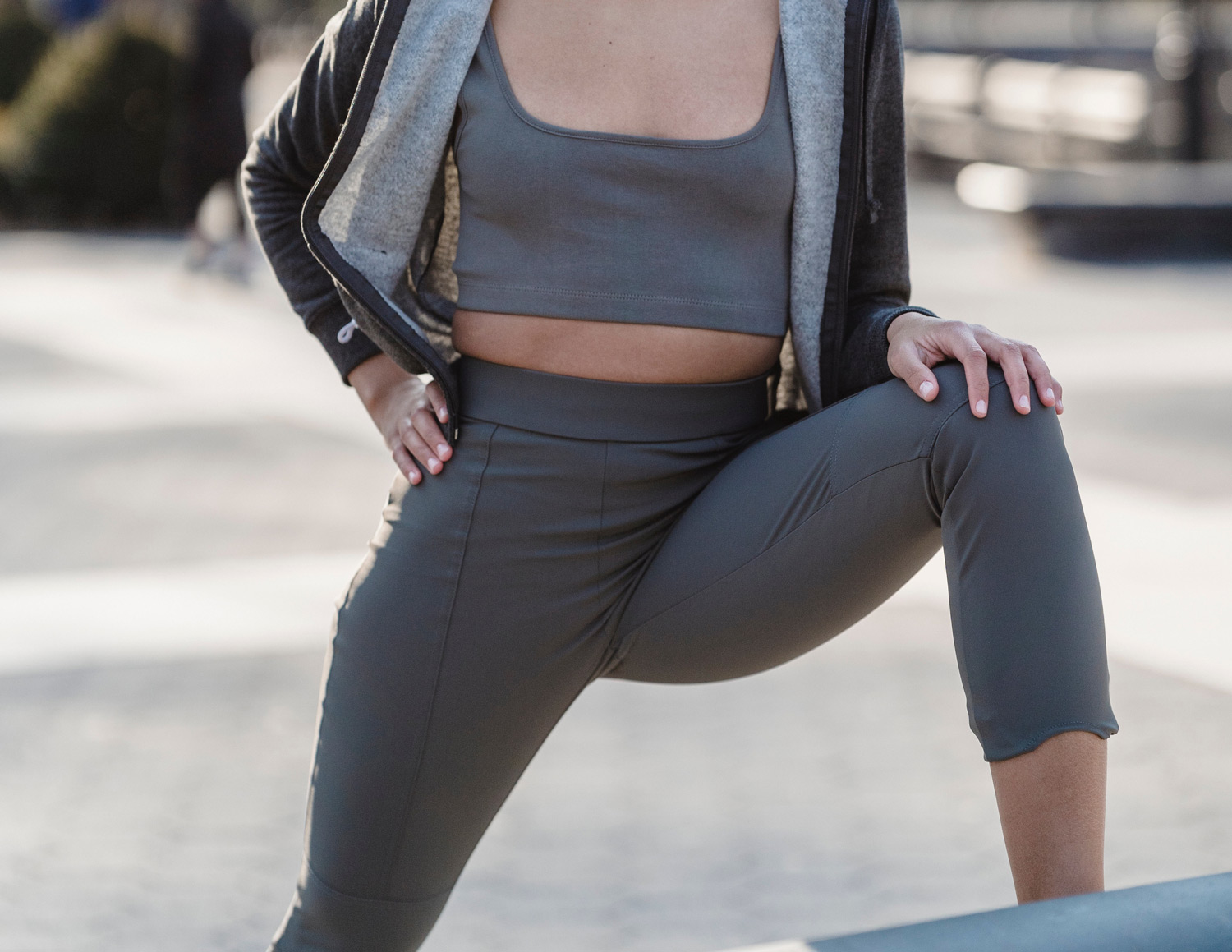At the Center for Spine Care and Mobility our goal is pain-free functional movement. A guiding principle of treatment at CSC+M is to reset, reinforce, and rebuild. An example we often see is an anterior pelvic tilt and lack of hip extension.
Reset Your Hip Extension
 The team achieves success by identifying movement patterns that are causing resistance to your mobility. In this case lack of hip extension limits our stride length and ability to shift weight in and out of our hips, forcing the lumbar spine to overcompensate.
The team achieves success by identifying movement patterns that are causing resistance to your mobility. In this case lack of hip extension limits our stride length and ability to shift weight in and out of our hips, forcing the lumbar spine to overcompensate.
We first restore pain free range of motion with hip flexor stretches, manual techniques, gentle chiropractic adjustments, acupuncture, and/or injection therapy to remove trigger points. In essence resetting your movement patterns.
I like to use contract/relax stretching of the psoas focusing on core stability and motion from the hip combined with a chiropractic adjustment on the table to RESET the dysfunctional hip extension.
Reinforce Proper Motor Sequencing
After improving mobility our aim is focused on restoring motor control and stability (both static stability and dynamic stability) These movements are referred as “reflexive activity” that occur without our conscious thought. Our physical therapist will often use exercise where you are lying down or on all fours to reinforce a normal motion. Reflexive activity drives both static and dynamic stability. An example of static stability is when one body part is not moving, but the body moves around it during physical therapy exercises or leaning your elbows on a desk. An example of dynamic stability is when the body is not moving, but the body part is moving around it during a session of active release therapy or throwing a ball.
As a chiropractor I like to use an active release of the psoas to reinforce the proper motor sequencing of hip extension on the table.
Rebuild Your Mobility
After resetting movement patterns and reinforcing corrected movement patterns we are ready to load our patients in functional movements. This often looks like exercises and movements done while standing or kneeling to rebuild our patients from the ground up.
A runner needs hip extension in normal running to translate force forward in an efficient manner. With loss of hip extension energy is inefficiency translated in the vertical direction. Remember, running requires force production of up to 5x your body weight, we wouldn’t expect you to be able to perform a loaded standing exercise if you cannot tolerate 1/2 body weight or less with an exercise performed while lying down.
Progressing a hip lift off the wall to a half kneeling lift while controlling an anterior pelvic tilt demonstrates you own newly gained mobility and will create adaptations that last when you RELOAD.
At CSC+M we treat the whole patient our patients are not just shoulder, knee or hip patients they are full body patients who suffer from shoulder, knee, or hip injuries.
